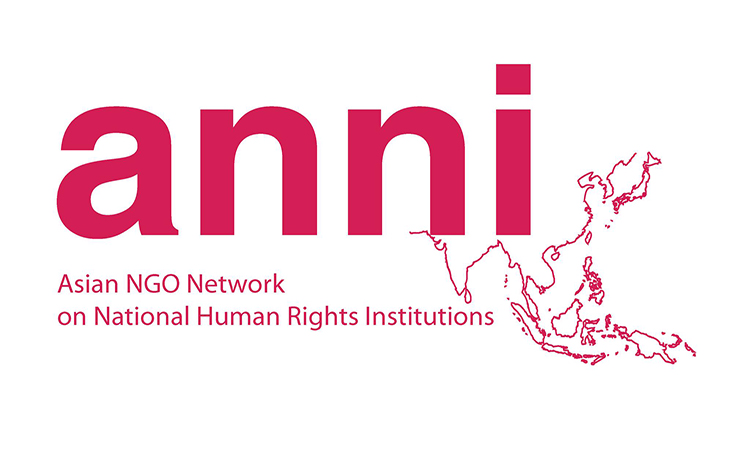
1 June 2018
Honorable President of India,
Ram Nath Kovind,
Rashtrapati Bhavan
New Delhi‐110 0004
Re: Open Letter to the Government of India concerning the possible appointment of Mr. Sharad
Kumar as Member of National Human Rights Commission
Dear Honourable President Ram Nath Kovind,
As the Asian NGO Network on National Human Rights Institution (ANNI), we would like to record our concern on the possible appointment of former Director General of the National Investigation Agency (NIA), Mr. Sharad Kumar, as a member of the National Human Rights Commission of India (NHRCI). The lack of transparency and participation of civil society in the appointment process will negatively
affect the ‘A’ status of NHRCI, granted by the Global Alliance on National Human Rights Institutions (GANHRI)’s Sub‐committee on Accreditation (SCA), as the independence and effectiveness of the NHRCI will be questioned.
As required by the Paris Principles and the General Observations, the selection and appointment of NHRCI members should be transparent, participatory, merit‐based, and take into consideration sociocultural diversity. We are concerned that these fundamental requirements have not been complied with in this case. The position has been vacant after the term of Shri Sharad Chandra Sinha ended in early 2018. According to Section three of the Protection of Human Rights Act 1993 (PHRA), this vacancy requires a person who ‘has knowledge of, or practical experience in, matters relating to human rights.’ It is one of two positions that do not require a person to have a background as a judge.
The Paris Principles encourage the appointment of Commissioners with a civil society background given their knowledge and experience, which can help the NHRI to be more effective and more responsive to the public’s needs. This makes it highly recommendable for the position to be filled by an eminent member of civil society with a proven track record in human rights promotion and protection to ensure pluralist representation in the composition of the NHRCI as required by the Paris Principles.
Pre‐determined, objective and publicly announced criteria are needed in order to have a merit‐based appointment. This is crucial to limit the chances of undue interference in the selection process. Although the criteria are stipulated within the PHRA, they are very broad and vague, and are not sufficient to assess the merit of a candidate.
The appointment should be in consultation with key stakeholders on the ground, specifically nongovernmental organisations (NGOs) and civil society. It cannot be a secretive process. As stated in the General Observations, expertise and experience of NGOs and civil society will result in greater public legitimacy of the NHRCI.
ANNI is also concerned that the possible candidate, Mr. Sharad Kumar, is another former Director General of the NIA, same as his predecessor Mr. Shri Sharad Chandra Sinha. In the 2011 SCA report, the SCA expressed its concern of having former police officers involved in the investigation of human rights violations, particularly in circumstances where alleged perpetrators are police or security forces. If former high‐ranking police officers continue to become members of the NHRCI, this will unduly impact the ability of the NHRCI to have impartial investigations, shatter its public image as an independent institution, and discourages victims to approach the institution for justice.
We wish to call your attention to the recurring recommendations made by the GANHRI’s SCA in relation to the selection and appointment of members of the NHRCI in its 2011, 2016 and 2017 reports. ANNI echoes the concerns brought up by the SCA.
ANNI would like to therefore request you to intervene to ensure that the appointment committee will respect and comply with the Paris Principles, General Observations and recommendations of the SCA to ensure transparency and independence in the appointment process. We also call for the appointment committee to hold consultations with all concerned stakeholders, including civil society, in order to assess and verify the integrity and quality of a potential candidates.
Yours Sincerely,

John Samuel
Executive Director
Asian Forum for Human Rights and Development (FORUM‐ASIA)
The Secretariat of the Asian NGO Network on National Human Rights Institutions (ANNI)
About the Asian NGO Network on National Human Rights Institutions (ANNI)
The Asian NGOs Network on National Human Rights Institutions (ANNI) was established in December 2006. It is a network of Asian non‐governmental organisations and human rights defenders working on issues related to National Human Rights Institutions (NHRIs). ANNI has members that are national organisations from all over Asia. ANNI currently has 33 member organisations from 21 countries or territories. The work of ANNI members focuses on strengthening the work and functioning of Asian NHRIs to better promote and protect human rights as well as to advocate for the improved compliance of Asian NHRIs with international standards, including the Paris Principles and General Observations of the Sub‐Committee on Accreditation (SCA) of the Global Alliance of NHRIs (GANHRI).
***
For a PDF version of this open letter, please click here.




